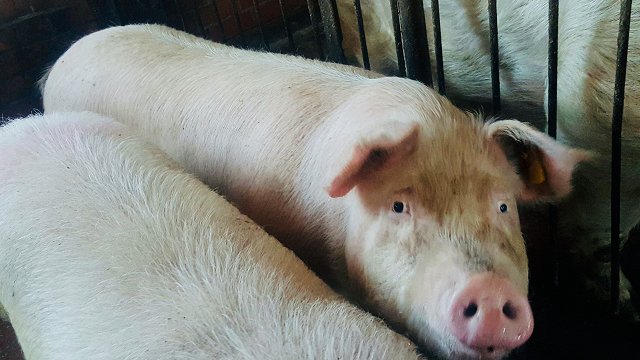The local farmers gathered at the district council hall to be informed of the current situation in their area, the principles of bio-security against contamination, as well as the procedures for the paying out of compensations meant to reimburse them for their culled pigs, or voluntarily giving up their healthy herds for a year in case it is impossible for them to put biosafety measures into place.
this is going to be a great shock to the countryside, says Valka district council chairman Vents Armands Krauklis
Yet the local government has learned that most of the affected homesteads likely cannot ensure proper biosafety standards. Local farmers also insist that the state-earmarked reimbursement payments will not suffice to cover a year-and-a-half’s worth of refraining from raising pigs entirely.
“Because there are already so many fewer economically active residents in rural areas, and now pig farmers are being forced to halt their activity, this is going to be a great shock to the countryside, both to families and individuals,” explains Valka district council chairman Vents Armands Krauklis.
The local government leader points to two proposals outlined in the plea addressed to the Cabinet, Agriculture Minister Janis Duklavs and the Saeima Economic, Agricultural, Environmental and Regional Policy Committee. First of all, Valka district requests access to free-of-charge consultations through the Rural Consultation Center, while the Rural Support Service (LAD) could consider making grants to farmers wishing to shift their animal husbandry profiles away from swine-keeping to develop new sectors or expand existing ones.
Secondly, those who cannot or wish not to change their farming methods must have some form of monthly support payment until such time as it again becomes possible for them to begin raising pigs. The amount of the payment would have to be enough to cover any unearned income for the period.
Meanwhile, pig farms across Latvia are not waiting for ASF to appear in its precious herds and already preparing biosecurity equipment and facilities in light of Food and Veterinary Service (PVD) orders for the currently affected state-of-emergency areas.
There is a particular risk of spreading ASF through thermally untreated grain feeds, warns the PVD Friday, which is especially pertinent to the coming harvest and threshing season. Under no circumstances should domestic pigs be fed freshly mowed grass or green mass, PVD spokeswoman Anna Joffe told business news portal nozare.lv. Special care must be taken to protect fields of potatoes, peas and corn located near wooded areas from the forest animals. Only grains heated at 60 degrees Celsius for at least 30 minutes are safe from any possibly survived ASF virus.
On Thursday PVD chief Maris Balodis reduced the estimate of pigs to be slaughtered by half to 20,000 animals, many of which have already been culled.
“We and our neighboring states believe Europe should co-finance at least 80% of the costs of battling this outbreak. Of course the Agriculture ministry will receive claims for business losses in connection with ASF. Possibly requests for compensations for companies that choose to stop their activities.
Swine-raisers’ Association spokeswoman Dzintra Lejniece, who was present at the ASF Baltic states-Poland ministers’ summit Wednesday, agreed that it was important to have EU cofinancing, especially in helping people make the change to another form of animal-raising.
Also yesterday the PVD unveiled eye-catching billboards warning of the prohibitions on carrying into state-of-emergency zones any meat or meat products, milk or milk products. They will be put out throughout the affected territories where local people and travelers from afar move about.
“Some are ready to take up pitchforks to protect their beloved household pigs,” said PVD inspector Dzintars Juskus. “They consider it nothing but another spit in the face.”
Meanwhile, a PVD inspector in Daugavpils district warned that some individual farmers are categorically opposed to state orders to cull their herds.
Senior Inspector for Southeast Latgale Dzintars Juškus told LETA he has been intensively visiting homesteads one by one and informing local residents of the situation and the government’s orders, as well as gathering them together at community meetings.
In their opinion, Juškus says, the compensation amounts are “ridiculous”, especially compared to those offered for hunted-down wild boar. “Some are ready to take up pitchforks to protect their beloved household pigs,” said Juskus. “They consider it nothing but another spit in the face.”
Agriculture minister Duklavs plans to visit the affected areas in both Latgale and Vidzeme provinces next week to see how the ASF-combating measures are proceeding first-hand.


























